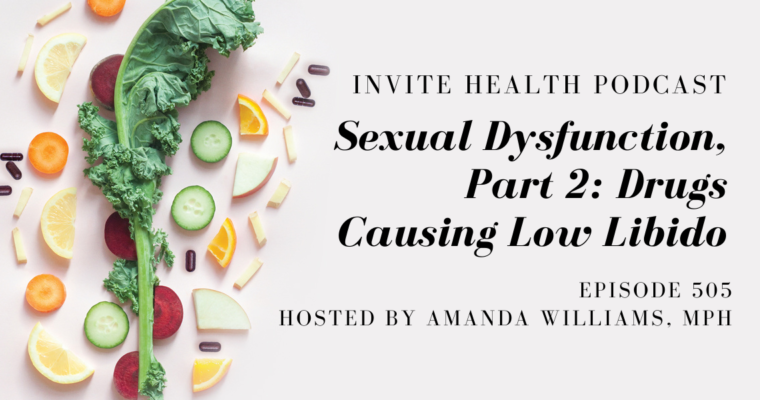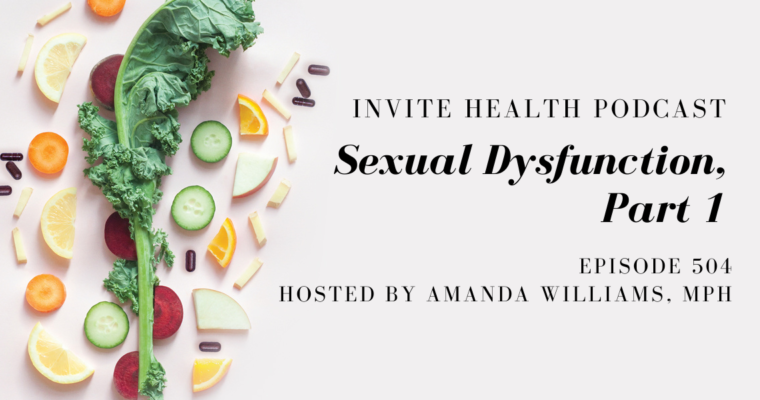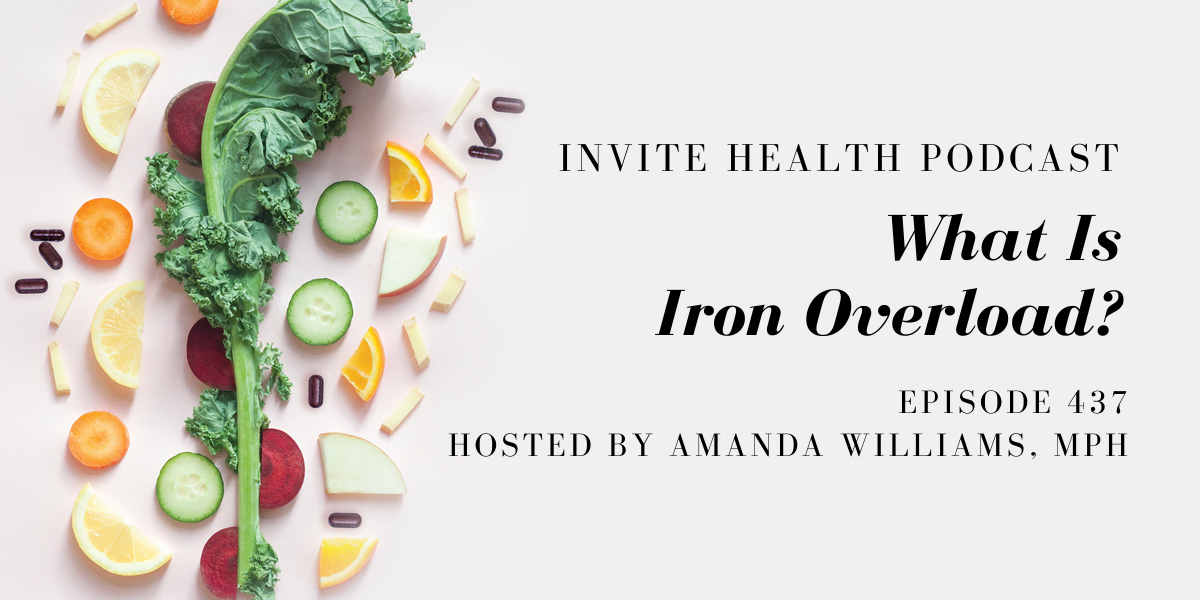zinc
Subscribe Today!
Please see below for a complete transcript of this episode.
Getting to Know Zinc – InViteⓇ Health Podcast, Episode 516
Hosted by Amanda Williams, MPH
*Intro music*
InViteⓇ Health Podcast Intro: Welcome to the InViteⓇ Health Podcast, where our degreed healthcare professionals are excited to offer you the most important health and wellness information you need to make informed choices about your health. You can learn more about the products discussed in each of these episodes and all that InViteⓇ Health has to offer at www.invitehealth.com/podcast. First time customers can use promo code PODCAST at checkout for an additional 15% off your first purchase. Let’s get started!
*Intro music*
Amanda Williams, MPH:
[00:00:40] The human body comes naturally equipped with vitamins and minerals, and when we look at the second most abundant mineral in the body, this is zinc. Zinc is just behind iron when it comes to its total distribution found throughout our system. We certainly understand the importance of iron when it comes to the production of hemoglobin in the transport of oxygen. So when someone has low iron, this can lead to anemia, which can make people feel very fatigued or short of breath. So what happens if our second most abundant mineral happens to be on the low end, whether that be insufficient levels or deficient levels? That’s what I want to talk about today. I’m Amanda Williams, M.D., M.P.H., and let’s talk about zinc.† [00:01:24]
SIGNS & SYMPTOMS OF AN IRON DEFICIENCY – INVITE HEALTH PODCAST, EPISODE 62. Listen Now>>
[00:01:25] Zinc is really one of those overlooked minerals in our system because many times we just think about it in the setting of our immune system. And clearly we know that it is very, very important. If you have insufficient levels of zinc or deficient levels of zinc, we can see how this creates what is known as immunosenescence, or basically creating an environment to which the immune cells and the immune system in general begins to degrade or lose its strength. So we know that we need to have zinc. But what are some of the other things about zinc that you may not know? And that’s what I want to zero in on today. When it comes to the multiple functions of zinc in the body. And I want to make sure that I’m clear on this because zinc has a few different actions that we know what makes it so impactful throughout our entire body. When we understand that through the catalyzation of enzymes, so zinc is responsible for catalyzing over 100 different enzymes. But it’s not just limited to that because we can also recognize that we need zinc for more than 2000 different transcription factors when we’re looking at gene expression, meaning every day functions in the body are heavily reliant on zinc. So now we can see, OK, if we don’t have enough zinc, this can definitely impact not just our immune system, but we can start to see the spiraling effect.† [00:03:03]
[00:03:04] So let me walk through just the key basic functions of zinc. We know that when it comes to at the cellular level, we can categorize zinc into three different sections. One is its catalytic properties, one in terms of structural and the other for regulatory. So we know that there are so many different enzymes that depend on zinc for that ability to catalyze. I said over 100 different enzymes. So in the absence of adequate zinc, we are now going to have a problem for those enzymes to be able to do what they need to do. Big problem. Now let’s think about the structural role. We understand that zinc helps and aids in the folding of certain proteins in the body. We can see its impact when it comes to different receptors that our hormones attach to, so we can think of thyroid hormone. We can look at our sex hormones, we can look at our adrenal hormones, and now we can see why low levels of zinc have been implicated in a underactive thyroid because without adequate zinc, the thyroid hormone itself is going to struggle. So it’s really absolutely fascinating when we take a simple mineral and then we start to really expand that out and say, “Oh my goodness, we have to have zinc for this, for, for gene regulation and for enzymatic expression and for these regulatory roles.”†[00:04:49]
[00:04:50] So if we don’t have zinc, how is it that we can help at that cellular level for nerve transmission, for that hormonal influence, even when we think about metabolic syndrome and enhancing insulin sensitivity? Zinc, yes, plays a role into this as well. We can see the true impact of zinc when we think about those hormonal health. When you look at men and prostate health, they’ve been able to correlate how low levels of zinc have been detected in prostate cancer cells. So if the prostate cancer cells do not have adequate zinc, that means they can continue to thrive. Because remember, zinc is helping the healthy cells with their replication, whereas the cancer cells are not using that. So it’s really very profound the amount of data and the amount of science that is out there when it comes to how zinc works in the body.† [00:05:56]

[00:05:56] And we can look at clear indications of zinc deficiency. And this is not as common as it once used to be. There used to be a lot of issues just because of malnutrition. And so you would see the worldwide prevalence of zinc deficiency was much more common many years ago. Now it’s not as common, however we can, we still see great rates or great prevalence of zinc insufficiency, and this can be problematic if we have inflammation. Inflammation in the intestines, for example. So we can look at things like ulcerative colitis, Crohn’s disease, the different inflammatory bowel diseases that we know impact many people. We can certainly see how those who are following more of a vegetarian diet may need a greater intake of zinc. So it’s possible that you can have a zinc insufficiency, which can now lead to problems with pathways, enzymes, hormones. And this is why I want to talk about it outside of just thinking of it for the common cold and for our immune system. Now we know that when we’re looking at different micronutrient deficiencies and easily a good 10, 15% of the population certainly is not obtaining enough just from dietary intake alone, which once again can lead to issues with our vision health, with our cardiovascular health, with our neurological health and obviously with our immune system health. So it’s not something that we want to overlook. Interestingly, they, they’ve been able to connect those dots and see how the inadequate exposure to zinc in our diet, creating these deficiencies or insufficiencies, have been linked to age-related macular degeneration. Interesting, right? Because many times when we think about zinc, like I said, we stay in that lane of immune system, but we now can start to expand that out and say, “Wait. Zinc is dealing with the structural, the functional.”† [00:08:13]
[00:08:15] And of course, looking at the catalytic component to zinc. And that’s where it’s really very interesting, the fact that it is required for these enzymes. And if we don’t have adequate amounts, how problematic that actually becomes for us when we’re looking at eye health and age-related macular degeneration, we can see that the zinc is found in very high concentrations within our retina. And so if we have inadequate zinc throughout our lifetime, and we have this continued steady decline of zinc within the retina, this can be a exacerbator to the development of age-related macular degeneration. We certainly see the linkage between blood glucose and glycation that occurs in the body in the setting of type two diabetes and metabolic syndrome. Certainly, we know that zinc plays a role in the action of insulin coming from the B cells. So we think about the pancreatic B cells and the secretion of insulin. We know that zinc definitely is playing this key, an important role. When we think about our mood, when I said neurological but thinking about brain health, we can certainly now link the inadequate intake of zinc with issues such as depression and anxiety. So it’s an area that we want to make sure that you’re getting an exposure to, that you’re not getting too much, you know, too much of zinc, you don’t necessarily need more than probably 50mg of zinc per day between, you know, the different nutrients that you’re taking from your multivitamin. Plus, if you have an add on zinc formulation.† [00:10:07]
HBA1C: WHY IT MATTERS TO HEALTHY AGING – INVITE HEALTH PODCAST, EPISODE 515. Listen Now>>
[00:10:09] But you definitely want to make sure that you do not ignore zinc, because at the end of the day, we want to be able to fend off oxidative stress, and we know that zinc is a unique mineral in the fact that it has antioxidant properties. We understand that zinc is this key co-factor when it comes to the way that our body heals a wound healing. So anyone that’s going in to have a procedure, I always say, make sure you’re taking your zinc and your Vitamin C. This is really very important. At the very least, we want to be taking a multivitamin that has a chelated zinc in it, so if you’re looking at our Core Multivitamin, the Men’s, the Women’s or the Performance Multi. You can also look at adding additional zinc via doing the Zinc Picolinate. Or you can also do the Immunity HxⓇ, which is going to yield you that zinc exposure as well, because remember, zinc is responsible for all of these different functions and different enzyme reactions in those biochemical pathways. So when we think about the regulation of protein and DNA synthesis and our thyroid function and bone health and our immune system and fending off oxidative stress, so whether we’re having concerns with cardiovascular health, thyroid health, neurological, vision health, we definitely want to make sure that we do not overlook the second most abundant mineral in the body, which is zinc.† [00:11:42]
[00:11:43] So thank you so much for tuning in to the InViteⓇ Health Podcast. Remember, you can find all of our episodes for free wherever you listen to podcasts or by visiting invitehealth.com/podcast. Now do make sure that you subscribe and you leave a review. You can follow us on Facebook, Twitter and Instagram, and we will see you next time for another episode of the InViteⓇ Health Podcast.† [00:11:43]
*Exit music*













